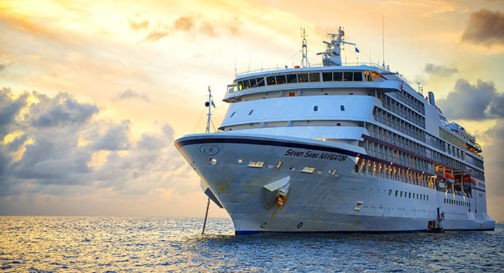A History of Maritime Law in the United States
July 03, 2022
Maritime law in the United States stretches throughout the entire history of the country, all the way to the founding of the first colonies. As the North American colonies were established to trade resources back to England, France, and Spain, shipping and the maritime industry were a critical part of the development of the U.S. The history of maritime law in the United States is important to understand U.S. maritime law today.
Origins of U.S. Maritime Law
U.S. maritime law has its origins in English law, with admiralty courts being established in several important colonial port cities. English maritime law in turn has its roots in ancient laws that were established to govern trade in the Mediterranean. Some of the English maritime laws that were brought to colonial America include the Laws of Hansa Towns, the Laws of Wisbey, and the Laws of Oleron. U.S. maritime law can also find some of its roots in French and Spanish maritime laws, as colonies such as Florida and Louisiana were adopted into the United States in the country’s early years.
Maritime Law in the Post-Revolutionary Era and 19th Century
U.S. maritime law following the American Revolution began with the Judiciary Act of 1789, which gave the federal courts exclusive jurisdiction over admiralty/maritime law cases. A savings clause under the Act authorized state courts to hear a limited subset of maritime cases. The exclusive jurisdiction of federal courts over maritime cases was also codified in the U.S. Constitution.
In the post-revolutionary era and through much of the 19th century, federal courts continued to rely on long-standing principles of maritime law, including maintenance and cure and salvage. However, Congress also passed laws to regulate various maritime issues. For example, in 1798, a law was passed that authorized deductions from seamen’s wages for the purposes of funding medical care for sick or injured seamen. Congress also passed federal laws in 1819 outlawing piracy, with the laws amended the following year to include participating in the slave trade in the definition of piracy.
In 1851, Congress passed the Limitation of Liability Act, which limited shipowners’ losses from unforeseeable events, such as storms or piracy, to the value of the vessel. Although the act has long been criticized for limiting the liability of negligent or reckless ship owners and operators, proponents of the act have argued that the statute helped foster the growth of the U.S. maritime industry by providing shipowners with some form of security against the hazards on the open seas that continued to claim many vessel throughout the 19th century.
Developments in Maritime Law in the Late 19th and Early 20th Century
The late 19th century through the early 20th century saw the passage of multiple important maritime laws, as the U.S. grew into a global industrial and commercial power. Several laws regulated the U.S. merchant marine industry, including:
- The Dingley Act of 1884, which imposed regulations on merchant marine pay
- The Maguire Act of 1895, which ended the imprisonment of sailors who deserved from coastwise vessels
- The Seamen’s Act, passed in 1915 to improve the working conditions of seamen
- The Death on the High Seas Act, a law enacted in 1920 that allowed surviving family members to pursue wrongful death claims for seamen killed on the high seas due to accidents caused by negligence or vessel unseaworthiness
Perhaps the most important piece of maritime law from this era, Congress also passed the Merchant Marine Act of 1920. The law was intended to ensure a strong domestic maritime industry that could also serve the national defense in time of war or emergency. The statute is also popularly known as the Jones Act. The act primarily regulates maritime commerce in U.S. territorial waters and between U.S. ports. The Jones Act established a restriction that required any shipping between two U.S. ports to be conducted by a U.S.-owned, U.S.-flagged vessel with crews primarily composed of U.S. citizens and permanent residents. Perhaps more importantly, the Jones Act also formalized the rights of seamen to obtain compensation from shipowners and operators for injuries caused by the negligence of the owner, ship captain, or even other members of the crew.
Additional Merchant Marine Acts were also passed in 1928 and 1936. Congress also extended the availability of financial compensation for on-the-job injuries to other maritime workers via the Longshore and Harbor Workers’ Compensation Act of 1927, which required workers’ compensation insurance coverage for maritime workers who were not otherwise covered by the Jones Act.
U.S. Maritime Law Today
Today, U.S. maritime law is codified in Title 33 and Title 46 of the United State Code. Title 33 generally deals with rules and regulations for navigable waters, including navigation rules and environmental regulations. Title 46 deals with maritime commerce and shipping. However, courts still also rely on long-standing maritime laws and doctrines, such as “maintenance and cure,” which offers seamen compensation for medical expenses and lost wages after suffering an injury or illness on the job, and the “doctrine of seaworthiness,” which holds shipowners strictly liable for injuries or death caused by an unseaworthy condition of a vessel, including missing or unsafe equipment, lack of railings or warning signs, or improperly stored cargo.
Modern U.S. maritime law is also governed in part by several important international treaties and conventions, such as SOLAS, MARPOL, and SCTW, which reflects the country’s role in an interconnected global economy reliant on ocean shipping.
Contact The Law Offices of Preston Easley for a Free Consultation to Learn More about Your Rights under U.S. Maritime Law
If you were involved in an accident or incident on the water, reach out to The Law Offices of Preston Easley today for a free, no-obligation case evaluation with a maritime lawyer from our firm. We can help you understand your legal options in your case and discuss how our firm can advocate for your interests.










